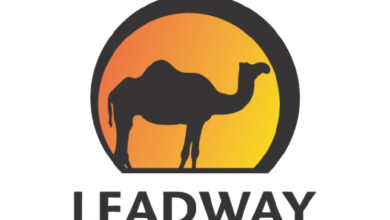NAICOM Harps On Role Of Insurers In Financial Systems Stability

Barineka Thompson, Director, Supervision Directorate, NAICOM
A hallmark of a stable and efficient financial system is its ability to fulfil its key economic functions at all times. Insurers offer enterprises, financial institutions, households and public sector entities cover against financial risks and thus perform a crucial function within the financial system and failure to perform this crucial function would have a direct impact on the real economy.
At the same time, insurers are highly interconnected with other financial intermediaries; Solvency problems in the banking and other financial sectors, can spill over to insurance companies, and insurers themselves could transmit risks to the rest of the financial system.
For example, the prevailing low-interest rates are a source of risk for the life insurance segment.
These assertions were contained in the presentation made by the Director, Supervision Directorate, National Insurance Commission (NAICOM), Barineka Thompson, entitled “Nigeria’s Insurance Market Growth And Stability Post COVID-19,” delivered at the 2022 Retreat For Financial Journalists in Uyo, Akwa Ibom State, with the theme “Improving Insurance Access Through Market Development and Innovation in 2022 and Beyond.
He explained that in a modern economy, insurance performs a variety of economic functions to shield individuals from risk through the transfer and pooling of risks whilst non-financial entities, financial institutions, households and public entities insure against financial risks, which gives them greater certainty in their forward planning and more entrepreneurial freedom thus lessening uncertainty in consumption and investment behaviour.
According to him, pooling and transfer of risks shield economic agents from risk; insurers’ funding is less volatile than that of banks; positive impact on risk allocation, economic growth and information efficiency; insurers are both financial intermediaries and asset managers; insurers are closely interconnected with other economic sectors and the financial market.
Barineka Thompson said Insurers’ revenue and profitability are affected by many macro, industry-wide, and line-specific factors, adding that understanding these sensitivities is important for evaluating risk and performance, predicting future earnings, and estimating equity value.
“The narratives below provides examples of macro, industry-wide and line-specific growth factors and their typical effects on insurance activities and business lines.
“Also provides a template for forecasting financial statement line items, discusses how these and other factors can be incorporated in forecasting,” he stated.
He Defined the Solvency margin as a minimum excess on an insurer’s assets over its liabilities set by regulators which can be regarded as similar to capital adequacy requirements for banks. It is a minimum level of the solvency ratio, with usually, a slightly more complex calculation.
On the Determinants of Solvency Margins, as stated by law, he said “An insurer shall in respect of its business other than its life, Solvency insurance business, maintain at all times a margin of solvency being margin, the excess of the value of its admissible assets in Nigeria over it liabilities consisting of provisions for unexpired risks; provisions for outstanding claims; provisions for claims incurred but not yet reported; and funds to meet other liabilities.”
Secondly, he stated, “The solvency margin referred to in subsection (1) of this section shall not be less than 15 per centum of the gross premium income less reinsurance premiums paid out during the year under review or the minimum paid-up capital whichever is greater.”
Other determinants of solvency margins include operating margin, firm size, investment performance, liquidity ratio, premium growth, underwriting result, and growth rate of surplus.
On Nigeria’s insurance market features and Covid-19, Barineke said although there has been a general negative effect of Covid-19, some sectors of the Nigerian economy reported positive growth, including the Insurance Sector.
The Insurance Sector, according to go him, has been resilient and largely stable during the Covid-19 periods, adding that the growth in Premium income and Assets of insurers in the respective years of 2019, 2020 and 2021 as presented in the foregoing data analysis
Major growth drivers in 2021 – Non-life were Oil & Gas (30.1%), Fire (19.1%), and Motor (15.2%) whilst major growth drivers in 2021 in the Life segment were Individual Life (47.7%), and Group Life (26.9%).
He said the growth in claims expense was caused largely by the difficult times of Covid-19 and #EndSARS Riot across the Nation, noting that insurers reported market retention, with the topmost class in Motor (94.8%) and Oil & Gas (35.4%) in 2021.
Barineka said insurers reported net positive reinsurance premium in 2018, 2019 and 2020.
On post-Covid 19, he said the deployment of high IT-end infrastructure and automation by the Commission will continue to facilitate compliance by insurers and supervisory activities.
“The introduction of Risk-Based Supervision will have a significant effect on Insurers’ soundness and stability of the financial system. The implementation of IFRS 17 Insurance Contract with effect from January 1, 2023 and the changes that will positively impact transparency, disclosure, accountability will impact market soundness and stability
“Ongoing efforts of the Commission to introduce Risk-Based Capital already indicated in its current 2021-2023 Strategic Plan will impact on Insurers’ soundness and stability of the financial system. Expected growth arising from the effect of a positive outlook of market development activities of the Commission
“Impact of public awareness of the vital role of insurance on the populace and the growth in economic activities will positively impact on the market,” he assured.





